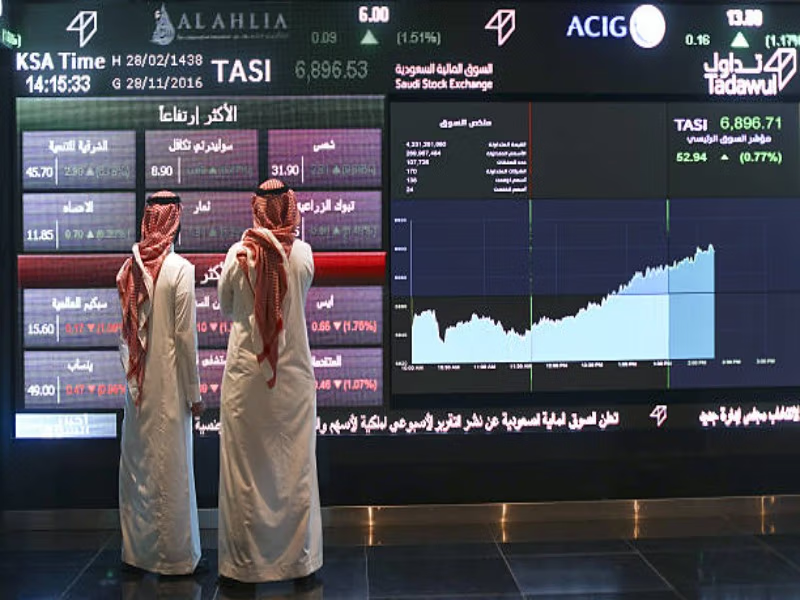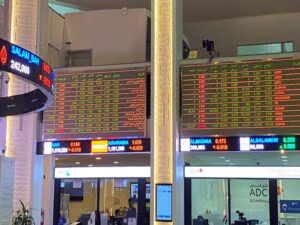The majority of leading stock markets in the Gulf were increasing early trade on Tuesday, and that was assisted by increasing expectations of a December Federal Reserve rate decrease and indications that the U.S. government shutdown might soon come to an end.
The data revealed that the U.S economy had lost jobs in October, and this was as a result of the weakening of the retail sector and the government.
A survey on Friday indicated that the U.S. consumer sentiment had deteriorated to a 3-1/2-year low in early November because of concerns over the economic impact of the shutdown.
However, the shutdown has postponed important economic indicators, such as the non-farm payrolls report.
The benchmark index of Saudi Arabia gained 0.1 percent, assisted by the increase in Al Rajhi Bank by 0.7 percent and a 4.9 percent increase in Dar Al Arkan Real Estate Development, as it would continue to gain amid a sharp increase in the quarterly revenues.
The stock of the investment company Kingdom Holding, which is owned by billionaire Prince Alwaleed Bin Talal, surged by 3 percent on a 129 percent rise in third-quarter profit. On the negative side, an oil company, Saudi Aramco, dropped by 0.2 percent.
The concern about oversupply prevailed over uncertainty about the effects of U.S. sanctions on the Russian oil giants Rosneft and Lukoil, leading to a decrease in oil prices in Asian trading.
Saudi Advanced Industries fell 6.4 percent, the largest fall since August, with an announcement of a 99 percent drop in third-quarter profitability.
The Dubai stock market index rose 0.5 percent as the blue-chip developer Emaar Properties rose by 1.9 percent.
According to CME Group’s FedWatch tool, traders are estimating a probability of about 64 percent that the Fed will reduce the rate by 25 basis points next month.
Gulf markets are highly affected by U.S. monetary policy changes because most of the currencies are pegged to the dollar.
However, the Abu Dhabi index was flat, the Qatari index increased by 0.4 with Qatar Islamic Bank leading by 1.5 percent.






